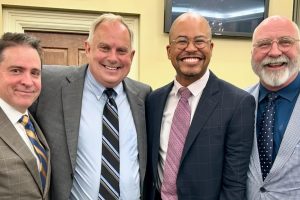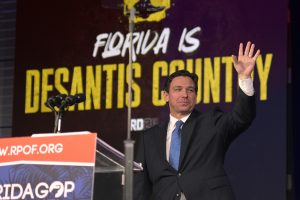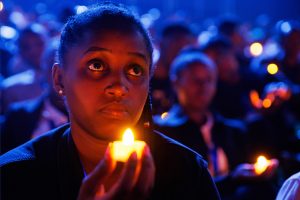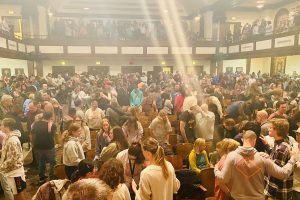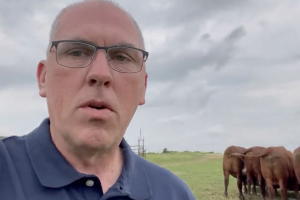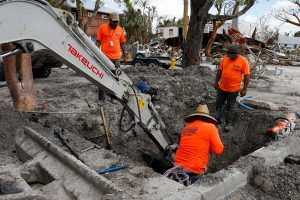Following the reversal of Roe v. Wade, abortion laws in the United States have become increasingly more complex, making women’s access to reproductive health care difficult.
Some states are creating new laws to preserve the right to an abortion, while others are tightening restrictions. This has created what some are calling abortion safe-haven states, which bolster abortion rights for women in neighboring abortion desert states. The safe-haven states provide access, and sometimes travel and medical funding, for both in-state and out-of-state women in need of care.
The Center for Reproductive Rights tracks abortion laws by state in real-time with its After Roe Fell map tool. The center created the tool to show viewers what might happen in America if Roe v. Wade were overturned. Since that became a reality, it has been adapted to serve as a state-by-state guide to abortion access.
Only 10 states offer expanded access to abortion care. States in this category have protected the right to abortion with statutes or state constitutions, according to the tool. These states also have created other laws and policies for additional access to abortion care.
Thirteen states provide protected access to abortion, meaning abortion rights are “protected by state law, but there are limitations on access to care.”
Beyond that, 13 states provide protected access to abortion, meaning abortion rights are “protected by state law, but there are limitations on access to care.” Limits include gestational bans, counseling requirements or required waiting periods prior to care.
These 23 states are the abortion safe havens. All other U.S. states and territories fall into three categories: Not protected, hostile and illegal.
If a state or territory is not protected, abortions might be accessible to women, but no laws guarantee the right to abortion care. Also, the state or territory might enact a ban in the future.
States or territories in the hostile category “have expressed a desire to prohibit abortion entirely,” the tool notes. These states and territories do not have any legal protections for abortion rights and may soon enact pre-Roe abortion bans.
Finally, states and territories in the illegal category enforce bans on abortion care, and a woman can be held legally accountable for receiving abortion care.
States and territories in these categories are the abortion deserts.
Migrating OB-GYNs
Abortion bans across the states directly impact women’s access to various types of reproductive care. They also impact the careers of obstetricians and gynecologists, since ever-changing bans on abortion put doctors at varying risks of legal consequences for providing services. Doctors in these states often have to deny patients care, even when situations may be life-threatening, referring them to out-of-state clinicians that may or may not be accessible to patients.
After facing these post-Roe challenges, many OB-GYNs who practice in red states, most of which are abortion deserts, have said they are tired of being unable to do their jobs. To avoid litigation, some have decided to move to states with more legal protections for abortion care. Others have changed careers.
Migration of OB-GYNs to safe-haven states means abortion deserts will become increasingly more severe as abortion care becomes even less accessible in red states.
This migration of OB-GYNs means abortion deserts will become increasingly more severe as abortion care becomes even less accessible in red states. And because OB-GYNs provide an array of services beyond abortion care, more women in these states will need to travel to receive various kinds of care.
As OB-GYNs migrate to the 23 safe-haven states and tighter abortion bans continue to come into effect, women in desert states lose the ability to obtain an abortion quickly. But they also lose quick and accessible access to an array of services as their doctors move out-of-state. Consequently, they may have to travel long distances to receive care for other medical conditions.
Pregnant women in the desert states may face more difficulty finding doctors willing to provide care for high-risk pregnancies. That’s because doctors in these states may choose to avoid making emergency medical decisions that may violate vague or confusing abortion laws.
Medical providers are aware of these risks, and although they may move to protect themselves from legal action, they still fear their patients in desert states will not receive adequate care.
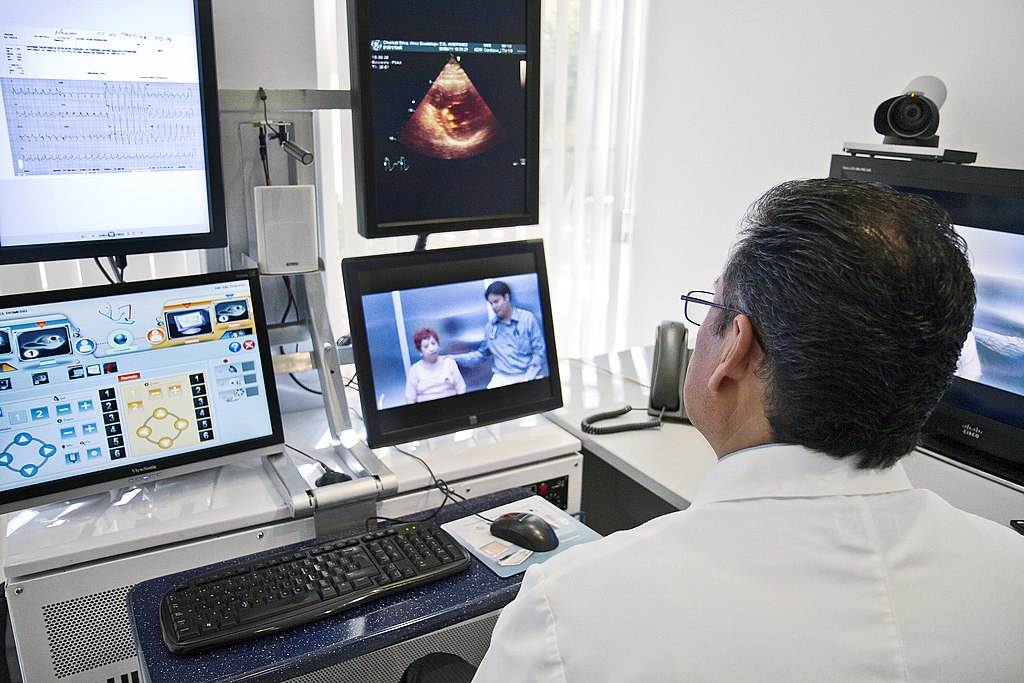
Photo/Wikimedia Commons
This brings telemedicine into the conversation, as doctors who practice in states where abortion is legal must weigh the risk of virtually prescribing abortion medication to patients who live in states where abortion is illegal.
So, telemedicine abortion services can be difficult to pinpoint in terms of legality.
Telemedicine
Some states, such as North Carolina, explicitly criminalize abortion through telemedicine. State law requires patients to be in person with the healthcare professional who is “conducting the procedure when they are given the medication.”
Other states have laws against abortion with no explicit bans on telemedicine. But because of existing restrictions in these states, telemedicine abortion care still may be litigious for providers.
For example, Whole Woman’s Health provides telemedicine abortion care to women in Illinois, Minnesota, New Mexico, Virginia and Maryland. It stopped working with providers based in Texas due to the breadth of the state’s abortion laws that put anyone who “aids or intends to aid in an abortion” at risk of being sued. Texas women in need of abortion care have driven hours to New Mexico to join a telemedicine appointment and receive a prescription for abortion medication.
Meanwhile, lawmakers continue to seek to limit access to abortion care over the whole country.
Born-Alive Survivors Protection Act
Passed by the U.S. House of Representatives Jan. 11, the Born-Alive Survivors Protection Act requires healthcare practitioners to provide life-saving medical care to infants born alive during late-term abortions. The bill stipulates if a practitioner intentionally fails to provide care to an aborted infant and the infant dies, the practitioner would be “subject to prosecution for murder.”
Professionals say instances like this — an infant born alive after a failed abortion — are nonexistent. The situation this bill envisions, in which an infant survives a late-term abortion, is not based on scientific data or medical experience, they insist.
“This bill is not based in science or medicine. It is meant to incite emotions, rather than reflect the reality of evidence-based clinical care.”
Iffath Abbasi Hoskins, president of the American College of Obstetricians and Gynecologists, condemned the new law. “This bill is not based in science or medicine,” she said. “It is meant to incite emotions, rather than reflect the reality of evidence-based clinical care. …

Iffath Abbasi Hoskins
“Laws that ban or criminalize evidence-based care and rely on medically unsupported theories and misinformation are dangerous to families and their clinicians. This bill negatively affects all obstetric and gynecologic care.”
Banning abortion medication
In Amarillo, Texas, Alliance Defending Freedom has filed a lawsuit — not against women who have abortions, or even doctors who conduct the procedures, but against the medication itself.
In 2000, the FDA approved the use of mifepristone, one of two medications taken to induce an abortion. The goal of this lawsuit is to undo the approval of mifepristone, claiming that during clinical trials, the FDA failed to prove a medication regimen including mifepristone is “safe and effective.”
However, according to the American Civil Liberties Union, numerous studies have shown contrary evidence, finding mifepristone is safe and effective and has a high efficacy rate.
Additionally, the same medication regimen, mifepristone and misoprostol, often is used to treat women who need medical care after having a miscarriage. So, banning the drug would be risky for all pregnant women, even those who are not seeking an abortion, because miscarriage can happen during any pregnancy.
Accessing abortion care
Despite these attempts to further limit access, some states are strengthening access to abortion.
For example, a recent California state mandate requires student health centers to keep abortion pills stocked and available for prescription to students. However, Republican lawmakers who oppose abortion introduced a bill that would prohibit federal funding for any college or university that participates.

Boxes of the drug mifepristone line a shelf at the West Alabama Women’s Center in Tuscaloosa, Ala.. (AP Photo/Allen G. Breed)
Observers expect other pro-choice states to follow suit with copycat laws or other bills that broaden access to abortion care in their states.
Women can find information about how to access abortion pills by state at plancpills.org. Some providers prescribe abortion pills to women who are not pregnant. This would enable women to use the medication if they need a medication-induced abortion quickly but do not have time to wait for shipping or cannot access the pills at all.
In the event an in-clinic abortion is needed or a woman prefers to see a doctor in person prior to having an abortion, Planned Parenthood developed a guide describing what will happen during the visit and procedure. It also tells women how they can find the in-clinic abortion provider nearest them.
The guide notes experiences will vary state by state. Depending on their situation, women may be able to receive funding for the procedure or travel expenses.
For people seeking up-to-date information on abortion laws and bans in America, Jessica Valenti posts daily on her blog Abortion, Every Day.
Mallory Challis is a senior at Wingate University and serves as BNG’s Clemons Fellow.
Related articles:
Can Christians come together to reduce the need for abortion?
SBC calls for ‘immediate abolition for abortion without exception or compromise’































